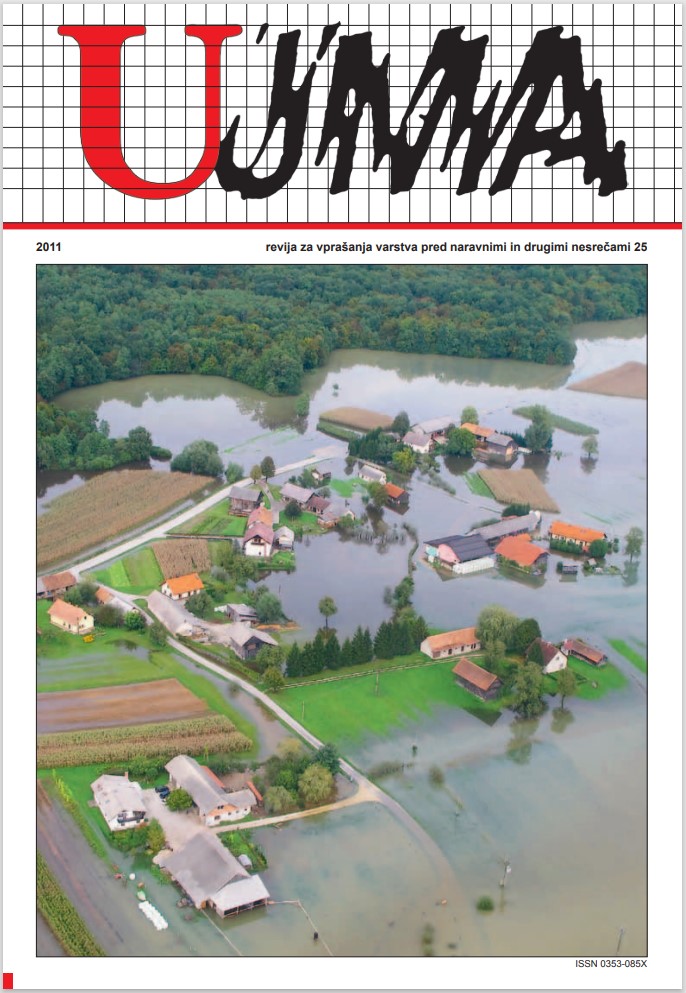PSYCHOSOCIAL SUPPORT FOR RESCUERS
Abstract
Rescue personnel are faced with stress during and after incidents. In coping with stress, knowledge of stress management, protective behaviour and social support can be of great help to them. Since incidents may also involve serious consequences, rescue personnel are offered psychological and social support in the form of peer and external professional support, short defusing interviews after the critical incident at the end of the shift, comprehensive psychological trauma integration (“psychological debriefing”) and psychotherapy. Traumatic events can be efficiently dealt with by cognitive behavioural therapy focused on trauma and EMDR. Support personnel can also make use of emergency telephone numbers, information and counselling through web sites, and training in stress and trauma.
References
Ajduković, D., 2011. TENTS-TP Radionica treninga trenera o psihotraumi. Zagreb: Filozofska fakulteta, Sveučilište u Zagrebu.
Arambašić, L. (urednik), 2000. Psihološke krizne intervencije: psihološka prva pomoć nakon kriznih događaja. Društvo za psihološku pomoć, Zagreb.
Bisson, J. I., 2003. Single-session early psychologi¬cal interventions following traumatic events. Clinical Psychology Review. 23(3), str. 481–499.
Dass Brailsford, P., 2007. A Practical Approach to Trauma. Los Angeles: Saga Publications.
Duckers, M., 2011. Open Access Information Websites after High Impact Disasters. European Journal of Psychotraumatology, 1/2011.
European Network for Traumatic Stress (TENTS), 2009. TENTS Guidelines, Academic Medical Center, University of Amsterdam, Amsterdam.
Izobraževalni center za zaščito in reševanje, 2010. Načrt izobraževanja in usposabljanja s področja varstva pred naravnimi in drugimi nesrečami 2011. Ljubljana: URSZR.
Mikuš Kos, A., in Slodnjak, V., 2000. Nesreče, travmatski dogodki in šola. Ljubljana: DZS.
Larson, G., Österdahl, L., 1996. Crisis Support. Swedish Rescue Service Agency, Karlstad, Sweden.
Svetina, M., 2007. Zaključno poročilo o rezultatih opravljenega raziskovalnega dela na projektu v okviru ciljnega raziskovalnega programa (CRP) Znanje za varnost in mir 2006–2010. Ljubljana, Filozofska fakulteta Univerze v Ljubljani.
Policija, 2010. Policijski zaupniki. Dostopno na: http://www.policija.si/images/stories/NovinarskoSredisce/SporocilaZaJavnost/2010/oktober/07-psiholoska_pomoc/policijski_zaupniki.pdf, 18. 5. 2011.
Policija, 2010. 24-urna psihološka pomoč. Dostopno na: http://www.policija.si/images/stories/NovinarskoSredisce/SporocilaZaJavnost/2010/oktober/07-psiholoska_pomoc/24-urna_psih_pomoc.pdf, 18. 5. 2011.
Rakovec-Felser, Z., 2002. Zdravstvena psihologija. Visoka zdravstvena šola, Maribor.
Selič, P., 1999. Psihologija bolezni našega časa. Lju¬bljana, Znanstveno in publicistično središče, Lju-bljana.
Te Brake H. 2011. Multidisciplinary Guideline. Euro¬pean Journal of Psychotraumatology, 1/2011.
Tekavčič Grad, O., 2003. Pogovori z ljudmi v duševnih stiskah. Ljubljana, Psihiatrična klinika.
Downloads
Published
Issue
Section
License

This work is licensed under a Creative Commons Attribution-NonCommercial-NoDerivatives 4.0 International License.
The articles are made available to the public under Creative Commons Attribution-NonCommercial-NoDerivatives 4.0 International (CC BY-NC-ND 4.0).


